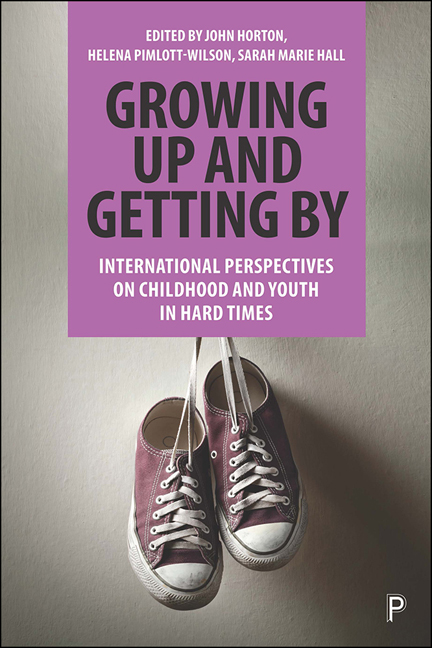13 - Looking towards the future: intersectionalities of race, class and place in young Colombians’ lives
Published online by Cambridge University Press: 18 December 2021
Summary
Introduction
This chapter explores how the achievement of aspirations for young, urban Colombians (aged 15–22) in Cartagena is constrained by the inequalities reinforced through the intersection of different types of discrimination. In the example of the two annual beauty pageants, the elections of Miss Colombia and the popular queen, that take place during the Independence Day celebrations in Cartagena in November, this chapter shows how the intersection of social class, race, gender and place creates spaces of exclusion and restricts access to opportunities within Cartagena for young people. While raising aspirations are claimed as one of the main drivers of social mobility for young people in marginalised places (Brown, 2011; Hart, 2016), this chapter argues that unequal power relations and patterns of exclusion limit young Cartagenians’ opportunities to pursue their aspirations. This is especially visible throughout the Independence Day celebrations in Cartagena where the events of the two beauty pageants reproduce patterns of discrimination and exclusion reminiscent of Cartagena's long history of slavery and colonialism. In particular, young people of the Afro-Colombian community living in high crime, lower social class neighbourhoods suffer from stigmatisation, discrimination and criminalisation. This chapter is based on data collected over nine months of ethnographic fieldwork, including interviews and participatory methods such as photography and filming, mapping activities and guided tours. By listening to the young Cartagenians’ perceptions and experiences, and by analysing the interplay between aspirations and their relation to the inequalities reproduced through the intersection of race, social class, gender and place, the chapter provides a more complete picture of the boundaries to achieving their desired future selves faced by these young people. The author argues that, even though young people have high aspirations, this is not enough to overcome structural inequalities that constrain their social mobility.
Aspirations and social mobility
For over a decade, the concept of aspirations has been prominent in social science concerned with the wellbeing and future of young people worldwide. Aspirations and their conceptualisation describe futureoriented goals, wants or desires (Ibrahim, 2011; Brown, 2011; Prince, 2014). In contrast to dreams and wishes, aspirations take the investment of effort, time and capital into achieving them into consideration (Hart, 2016; Marzi, 2018).
- Type
- Chapter
- Information
- Growing Up and Getting By , pp. 251 - 268Publisher: Bristol University PressPrint publication year: 2021



